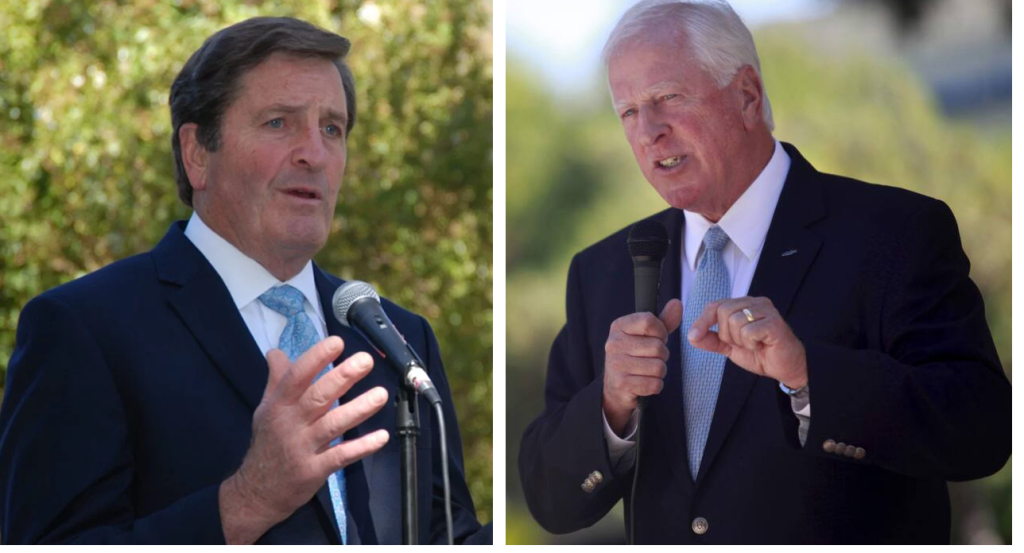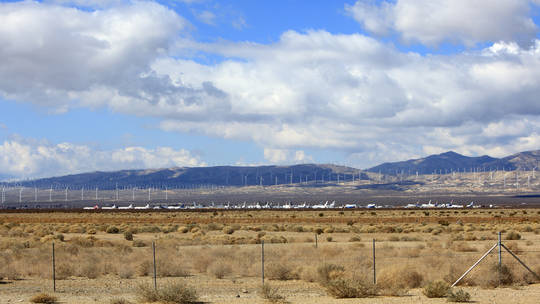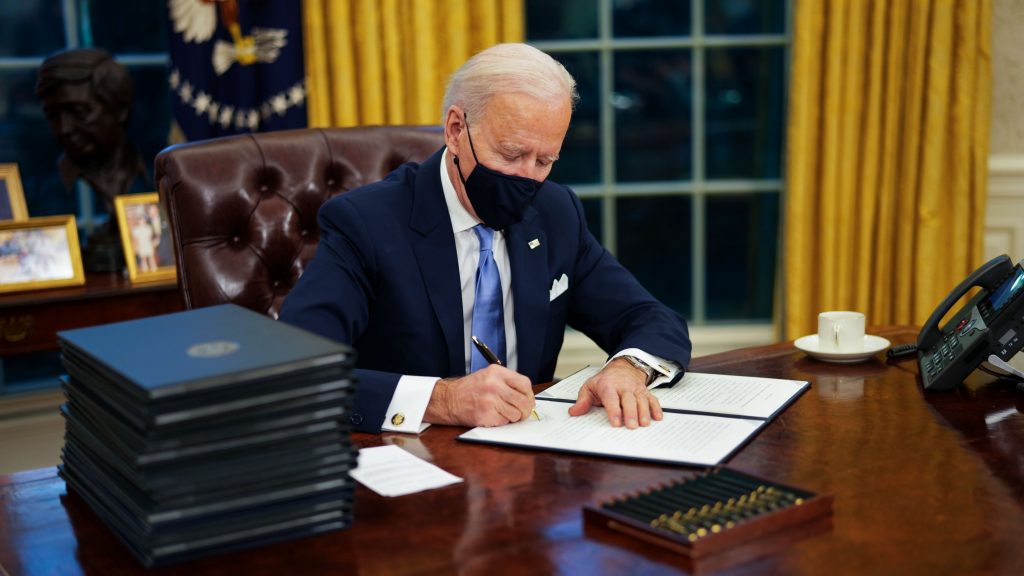
By TZBN Staff and Agencies.
Two American congressmen have expressed serious concern US national security is under threat following suspected foreign purchase of large piece of land next to a major US Air Force base in California.
Over the past five years, a suspected foreign investment group called Flannery Associates have purchased approximately 22,000 hectares of land in Solano County, California, including parcels with wind turbines, the American publication Wall Street Journal has reported. Much of the purchased land borders Travis Air Force base, which houses large military aircraft from the US Air Mobility Command used for transporting military personnel and supplies.
The company has spent around $800 million on the land and is regarded as the largest landowner in the county. Flannery is registered in the state of Delaware, Wall Street Journal has reported, but the company’s true owners are believed to be foreigners–which increases risk to American national security .
Congressman John Garamendi, a Democratic Party member of the US House Armed Services Committee’s readiness panel and another California congressman, Democrat Mike Thompson, have asked for an investigation into this suspected foreign land acquisition in the State.

“We don’t know who Flannery is, and their extensive purchases do not make sense to anybody in the area. The fact that they’re buying land purposefully right up to the fence at Travis raises significant questions,” Congressman John Garamendi told Wall Street Journal.
Democrat Congressman Garamendi and the other California congressman, Mike Thompson, have asked for an investigation into this suspicious acquisitions. They have called on the Committee on Foreign Investment in the US (CFIUS) to conduct the investigation.
The CFIUS can block foreign investments in the US if determined to be a threat to national security. President Joe Biden issued an Executive order in September 2022 describing American product value chains, critical minerals, elements of the US agricultural industrial base and clean energy technologies as some of the new vulnerabilities in the sphere of national security .

US Treasury Secretary, Janet Yellen, later issued a statement to clarify on President Biden’s Executive Order concerning ‘the new national security vulnerabilities’ which come with foreign investments. Treasury Secretary Yellen also serves as the CFIUS chairperson.

“President Biden’s Executive Order highlights CFIUS’s increasing attention to national security risks in several key areas and sharpens the Committee’s focus on protecting America’s national security, while maintaining the U.S. open investment policy,” the Treasury Secretary said in her statement.
“Strengthening our supply chains and protecting against foreign threats enhances our national security, and this Executive Order highlights CFIUS’s important role in that work. It also reaffirms CFIUS’s mission to protect America’s technological leadership and the security of our citizens’ sensitive data from emerging threats,” Secretary Yellen said.
The Executive Order builds upon the illustrative list of national security factors in CFIUS’s authorizing statute (section 721 of the Defense Production Act of 1950, as amended) and reflects the evolving nature of national security risks that CFIUS addresses under its current authorities.
The Executive Order elaborates on two national security factors contained in the authorizing statute relating to supply chain resiliency and security, and U.S. technological leadership. The Executive Order highlights key sectors where these factors can present a particular risk, including microelectronics, artificial intelligence, biotechnology and biomanufacturing, quantum computing, advanced clean energy, climate adaptation technologies, critical materials, and elements of the agriculture industrial base.

The Executive Order then describes three additional national security factors that CFIUS considers in reviewing transactions under its jurisdiction. The first is aggregate industry investment trends — which refers to the possibility that a foreign person may gradually gain control in a sector or technology through a series of transactions over time — which implicates national security risks arising from an individual transaction that may not be apparent when the transaction is viewed in isolation.
The Wall Street Journal says CFIUS can advise the US government to block foreign acquisitions for security concerns. The call to investigate the acquisition has already been heeded the outlet reports. Authorities have launched the investigation into the series of land acquisitions amounting to nearly $1 billion near the major military base in California. Wall Street Journal cites anonymous sources.
Flannery is registered in the US state of Delaware, and as such does not have to publicly disclose information about its owners. However, the acquisitions have raised questions as to the owners’ origins and their intentions for the land. According to the Wall Street Journal, investigations into Flannery have been ongoing for eight months, and have so far failed to identify those behind the company.
An attorney for Flannery told the news outlet that the company is controlled by US citizens and that 97% of its capital comes from US investors, while the rest comes from the UK and Ireland. He did not provide further details regarding the owners’ and investors’ identities, but stated that “any speculation that Flannery’s purchases are motivated by the proximity to Travis Air Force Base is unfounded.”
The Wall Street Journal notes that over the years, Flannery has tabled a number of plans regarding the use of the purchased land, from renewable energy and related projects to farming “new types of crops or orchards,” and leasing it to olive growers.
However, county supervisor Mitch Mashburn told the WSJ that most of the purchased land is dry farmland, and he doubts “that land can turn a profit to make it worth almost a billion dollars in investment.”
The authorities have so far been unable to confirm or deny Flannery’s statement that it is US-owned, a congressional aide told the Wall Street Journa.. However, CFIUS–which is led by the Treasury Department– could be granted authority to order Flannery to reveal more information about its owners, the outlet reported.



